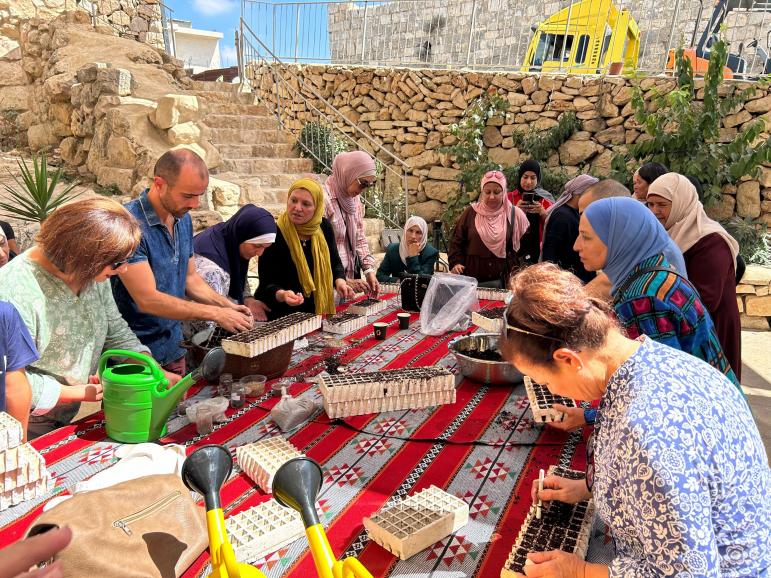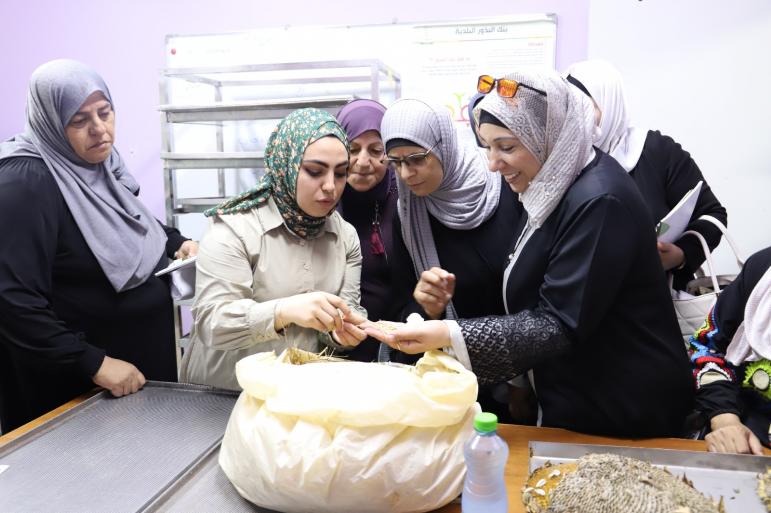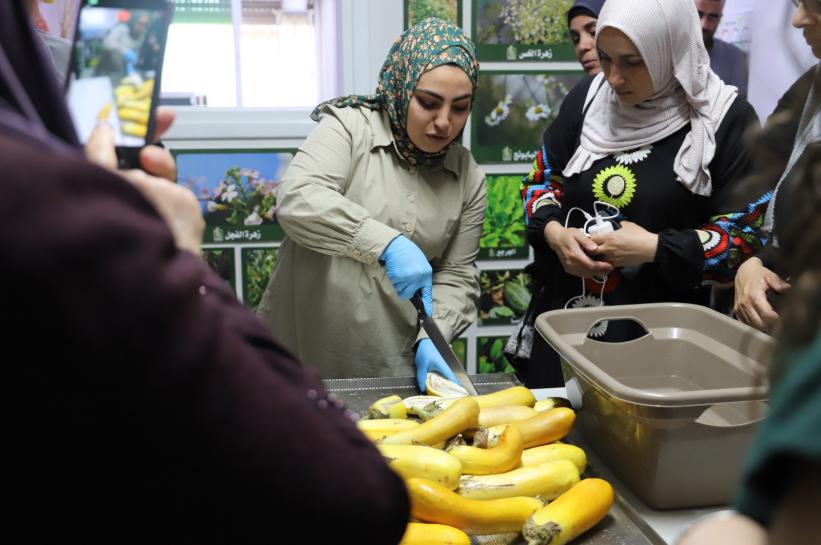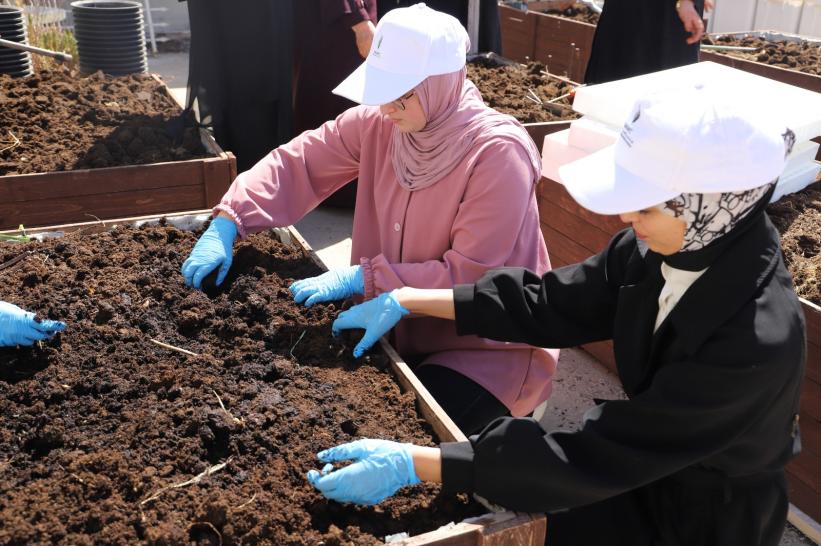In the face of ongoing threats to Palestinian agriculture, Dalia Association is making significant strides in protecting and promoting indigenous seed varieties essential to Palestine’s food sovereignty. Recently, Dalia hosted "Indigenous Seeds Germination" an event held at the Zuwwadeh Cooperative for Home Production in Nablus. Led by Saneiyeh Shqair, the workshop introduced natural, chemical-free planting methods using essential materials like compost and peat moss and covered every stage of the planting process. Shqair underscored the importance of preserving indigenous seeds, highlighting their vital role in self-sufficiency and resilience for Palestinian farmers.
Representatives from various agricultural cooperatives, including Al-Sahl Nursery in Beit Furik and Turquoise Nursery in Nablus, gathered to participate in the event. The workshop not only facilitated community collaboration but also emphasized the critical role of traditional agriculture in sustaining Palestine's cultural and agricultural heritage.
Dalia Association’s efforts continued with a volunteer day dedicated to germinating indigenous seeds. In partnership with the Seed Bank and the Agricultural Work Committees in Hebron, over twenty farmers gathered to germinate more than 500 indigenous winter seedlings. Participants also attended a discussion on the importance of indigenous seeds, deeply rooted in Palestinian identity, and learned about the Seed Bank's role in preserving these native varieties amidst the increasing prevalence of lab-engineered seeds. The day concluded with a tour of the Seed Bank's facilities, where farmers observed seed extraction processes firsthand and participated in practical demonstrations.
A Seed Germination Workshop led by Mohamed Khweira at Beit Al-Karmeh in the old town of Kafr Aqab, brought together over 25 volunteers to germinate more than 1,200 indigenous seeds. These seeds were later distributed to cooperatives and farmers, promoting indigenous varieties and furthering Dalia’s mission to protect traditional crops.
Dalia Association’s commitment to agricultural resilience is crucial, as indigenous seeds hold unmatched importance for Palestine's food sovereignty. They are uniquely adapted to the indigenous environment and offer a vital alternative to genetically modified seeds that threaten indigenous crops with extinction. By supporting farmers in planting and preserving indigenous seeds, Dalia helps ensure that Palestinian agriculture remains self-sufficient and sustainable.
In an effort to protect Palestinian agricultural heritage on an international scale, a collection of Palestinian seeds was recently deposited by the The Union of Agricultural Work Committees (UAWC) in the Svalbard Global Seed Vault in Norway, often called the "Noah's Ark" of biodiversity. This milestone forms part of a larger strategy to protect Palestinian crops from risks of confiscation, deliberate destruction, and other pressures that endanger Palestinian agricultural heritage. In the face of restrictive measures and environmental challenges, this project aimed to preserve these essential crops for future generations. The deposit was conducted in partnership with the Nordic Gene Bank (NordGen), ensuring the seeds are protected from unauthorized interference.
As Palestine’s agricultural sector faces mounting challenges, Dalia Association plays a significant role in preserving indigenous seeds and empowering farmers and communities to safeguard a resilient future. Through community engagement and partnerships, Dalia continues to inspire sustainable practices and promote the significance of indigenous crops in preserving Palestinian identity and autonomy.








